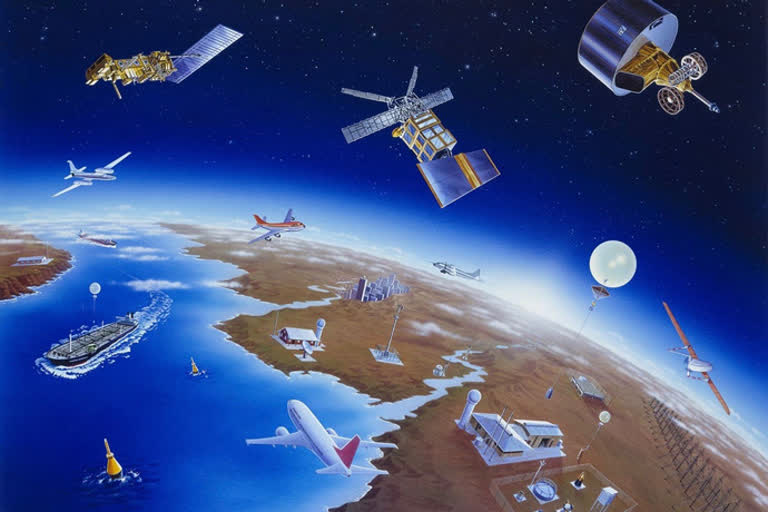Hyderabad: As the coronavirus continues to creep across the globe, the World Meteorological Organization (WMO) is concerned about the increasing impact of the COVID-19 pandemic on the quantity and quality of weather observations and forecasts, as well as atmospheric and climate monitoring.
The overall health and performance of WMO coordinated Global Observing System are under continued monitoring during the current COVID-19 outbreak.
Meteorological measurements taken from aircraft have plummeted by an average 75-80% compared to normal, but with very large regional variations; in the southern hemisphere, the loss is closer to 90 per cent.
It has been observed that the surface-based weather observations are in decline, especially in Africa and parts of Central and South America where many stations are manual rather than automatic.
Read: Climate change can threaten sea snails in mid-Atlantic waters: Study
WMO Secretary-General Petteri Taalas said that National Meteorological and Hydrological Services continue to perform their essential 24/7 functions but are facing increasingly severe challenges as a result of the Coronavirus pandemic, especially in developing countries.
"We salute their dedication to protecting lives and property but we are concerned about the increasing constraints on capacity and resources. The impacts of climate change and the growing amount of weather-related disasters continue, as we have seen with Tropical Cyclone Harold in the Pacific and the floods in East Africa. As we approach the Atlantic hurricane season, the COVID-19 pandemic poses an additional challenge and may exacerbate multi-hazard risks at a single country level. Therefore it is essential that governments pay attention to their national early warning and weather observing capacities," said Taalas.
In most developed countries, surface-based weather observations are now almost fully automated.
However, in many developing countries, the transition to automated observations is still in progress, and the meteorological community still relies on observations taken manually by weather observers and transmitted into the international networks for use in global weather and climate models.
WMO is also monitoring the exchange of observations from the marine observing systems, which provide critical information from the 2/3 of the earth's surface that is covered by the oceans. The ocean observing systems also rely on a high degree of automation, and most parts are expected to continue to be working well for a period of up to several months.
Read: World records low pollution amid lockdown; WEF says learn from experience
At this point, the most significant impact is on the Voluntary Observing Ships (VOS) program, where a reduction in data availability of about 20% compared to normal levels is seen.
On a positive note, the present situation demonstrates the importance and stability of the space-based observing system component, on which WMO Member are increasingly relying. Currently, there are 30 meteorological and 200 research satellites, providing continuous, highly automated observations.
It is pertinent to mention here that the WMO's Global Observing System serves as a backbone for all weather and climate services and products provided by the 193 WMO Member states and territories to their citizens. It provides observations on the state of the atmosphere and ocean surface from land-, marine- and space-based instruments. This data is used for the preparation of weather analyses, forecasts, advisories and warnings.
Also Read: Climate Vs Coronavirus: Why Senate's $2 trillion package could represent missed opportunities



